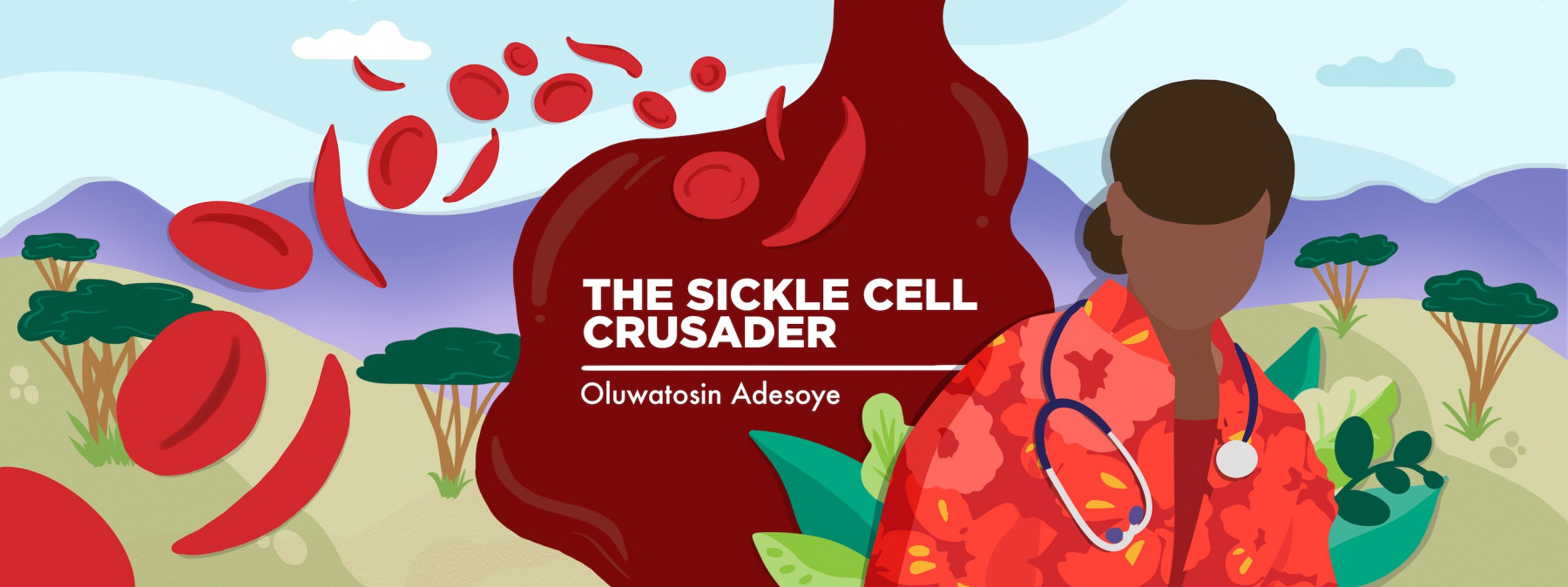While a champion of my fellow warriors, I also hold us accountable
We can point fingers at inadequate systems, but one finger must implicate us
Written by |

Over the years, I’ve used my voice as a sickle cell disease warrior, advocate, and health professional to point out the shortcomings of the government, the public, and the healthcare system when it comes to the worsening of sickle cell morbidity and mortality.
But today, I need to turn the mirror on us patients. It’s high time I held sickle cell warriors accountable for the part we play in our own health and survival.
Many sickle cell patients aren’t aware of the importance of timing in medical interventions, or that it’s crucial to get expert care on time. Perhaps if we did, we wouldn’t be so careless or stubborn with the health decisions we make.
When bad things happen to some of us sickle cell warriors, we’re always quick to blame everyone but ourselves, even when we’re at fault. Our blames are often valid, but there’s another valid source of blame we consistently avoid: ourselves.
How we fall short
I’ve seen firsthand how a patient’s stubbornness, poor judgment, poor decision-making, and sense of entitlement can lead to tragic ends. I’ve witnessed warriors die because they think they know more than everyone, even their doctors and nurses. The “I am always right syndrome,” common in many sickle cell patients, is a dangerous delusion. It’s the reason so many of us confidently share misinformation and refuse to listen to sound advice — a mindset that can, and sometimes does, lead to disasters.
Again, a lot of sickle cell patients assume they know more than their health professionals. Sometimes that’s possible, especially since some health professionals don’t have enough knowledge about sickle cell disease. But that’s not always the case; many times, sickle cell patients argue blindly and wrongly with knowledgeable health professionals about their health.
You should listen to your doctors and nurses; there’s a reason they’re professionals and you’re not. (I should remind readers here that I’m a doctor.) Don’t assume you know more than them. You may be right sometimes, but you won’t always be right. Before you jump to the conclusion that your healthcare professionals are wrong, listen attentively to them so you don’t make a serious mistake about your health.
Unfortunately, some warriors have died alone, helplessly at home in the middle of the night, because of their choices. Such cases, in my view, are often born from a false sense of strength, independence, and confidence, believing that because they haven’t had an emergency recently, they’re somehow immune to one now. If you haven’t had an emergency in 20 years, who told you that you can’t have a terrible such incident tomorrow? After all, you still live with sickle cell disease.
I understand that living alone might be a necessity, and in countries with excellent ambulance services, it may be a manageable risk. But what happens if a complication leaves you immobile or unconscious and you can’t make that call? In places like Nigeria, where I live and where reliable hospital ambulance services are not as common, living alone in an area without a dependable neighbor is reckless. It’s a risk no warrior with moderate to severe disease should take.
Yes, life is full of risks for everyone, but as warriors, we’re more predisposed to certain health emergencies. It’s our duty to prepare for them. It takes less than one minute for everything to go wrong if a patient doesn’t get medical attention on time. People living with sickle cell disease should be aware that some complications can be reversed when attended to promptly and that the timing of intervention can determine whether a patient lives or dies.
No one is forcing you to live with your parents if you don’t want that. Live with your spouse, a sibling, a cousin, or a friend. If you must live alone, seek out a dependable neighbor who can help you in an emergency.
Secondly, there’s a limit to home or self-management. A lot of sickle cell patients, especially in Africa, take their health management for granted. If you aren’t responding to oral pain drugs or you have serious symptoms, go to the hospital and get expert help immediately.
Another dangerous practice I see, especially here in Africa, is patients and caregivers asking each other for advice on what drugs to take. That’s incredibly dangerous. Sickle cell disease management is highly individualized. A drug that works for one person could be toxic for another because of differences in people’s background health conditions, complications, weight, or body metabolism. Please consult a healthcare professional when needed.
Let’s make better decisions, focus on controlling the factors we can, and play our part in reducing sickle cell mortality. Everyone will die one day, but let’s try our best to live as long as we can.
Note: Sickle Cell Disease News is strictly a news and information website about the disease. It does not provide medical advice, diagnosis, or treatment. This content is not intended to be a substitute for professional medical advice, diagnosis, or treatment. Always seek the advice of your physician or other qualified health provider with any questions you may have regarding a medical condition. Never disregard professional medical advice or delay in seeking it because of something you have read on this website. The opinions expressed in this column are not those of Sickle Cell Disease News or its parent company, Bionews, and are intended to spark discussion about issues pertaining to sickle cell disease.



GERMAN GHISAYS
SOY DE COLOMBIA TENGO ANEMIA DE CELULAS FALCIFORME TENGO 25 AÑOS Y TENGO UNAS ULCERAS EN LOS TOBILLOS HACE 9 MESES Y NO SE CURAN CON NADA HAY ALGUN MEDICAMENTO QUE ME PUEDA AYUDAR GRACIAS
Abel Ajagun
Thanks for your advice.